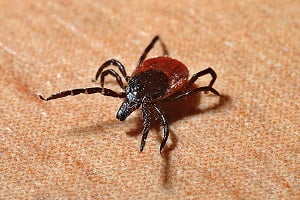Diet and Nutrition to Fight Lyme Disease
- Updated on: Dec 26, 2020
- 3 min Read
- Published on Dec 26, 2020
Nutrition and food play a vital role in coping up and managing the Lyme disease. There are three ways of Lyme disease treatment:
- Bug killing
- Immunity boosting
- Avoiding other stressors
Nutrition doesn’t help in bug-killing but provides strength and health resilience. Regulation of hormones, management of inflammation, immune support, and detoxification function can be influenced by nutrition. The first and foremost recommended food for Lyme disease should be anti-inflammatory. Since chronic inflammation is associated with Lyme disease, which can cause joint pain, fatigue, brain fog, headache, swelling in joints, and also inhibits the cells from healthy functioning. The first and foremost recommended food for Lyme disease should be anti-inflammatory.
Following are some of the dietary measures to fight Lyme disease:
Immunity Boosting Diets
Immune system compromised by Lyme disease is boosted by vitamins, omega – 3 fatty acids, and minerals; it also increases the glutathione system. Glutathione is an antioxidant and even a molecule that helps in cell signaling pathways. It plays a vital role in the detoxification of reactive oxygen and nitrogen species. Specific amino acids, vitamins, and minerals are required for the production of glutathione. Some functional food and phytonutrients also upregulate the glutathione system. Animal protein has abundant amino acids that help in glutathione production and a system like methionine, cysteine, and glycine. A vegan diet should be avoided during Lyme disease as it contains a low–protein diet and significantly lowers the system’s level of glutathione. Vegan patients with Lyme disease who are not willing to include animal protein in their diet should intake amino acid supplements to boost glutathione production.
Vitamin C and E help in the recycling of oxidized glutathione in the body. Vitamin C rich foods like broccoli, bell pepper, citrus fruits, cauliflowers, sprouts are recommended. Foods like avocados, nuts, seeds, olive oil are a good source of vitamin E.
Fat-soluble vitamins and omega – 3 fatty acids boost immunity in Lyme disease. Omega – 3 fatty acids are natural COX – 2 inhibitors and anti-inflammatory agents and are therefore highly recommended in Lyme disease. Omega – 3 levels can be increased by eating wild-caught seafood thrice a week.
Patients with Lyme disease often suffer from a low level of vitamin D. Borrelia burgdorferi organism that causes Lyme disease usually attacks the immune system’s vitamin D receptors. To inhibit Lyme arthritis, active supplements of vitamin D is suggested.
Anti-Inflammatory and Nutrient-Dense Diet
Following foods are included:
Organic Animal Protein
For healthy physiological functions and cognitive functions, animal protein is recommended as it contains amino acids, iron, and vitamin B 12, which helps to boost energy.
Vegetables and Fruits
Three to four servings of non-starchy vegetables are suggested; they provide dietary fibers, vitamin B and C, which has anti-inflammatory properties and also boost gut functioning. The amount of starchy vegetables and fruit intake depends on the patient’s blood sugar levels, poorly managed blood sugar level impairs the immune system to fight against Lyme disease.
Healthy Fats: Avocado, olive oil, coconut oil, and seafood help maintain a healthy inflammatory balance.
Seeds and Nuts: Provide vitamin E and all variants of vitamin B and trace minerals, which show anti-inflammatory benefits.
Legumes and the Gluten-Free Diet: Patients with undisturbed gut microbiome benefit from a moderate amount of gluten-free legumes and grains. But, the patients whose gut has been disturbed need to avoid food containing gluten.
Diet to Support Brain Health
The brain is the most affected organ due to Lyme disease as it leads to brain inflammation. A biofilm is created in the patient’s brain; it also impairs neuronal energy production. Lyme disease plays with the metabolism of tryptophan; it redirects the conversion of tryptophan to an inflammatory metabolite instead of serotonin. Vitamin B6 is recommended to turn the tryptophan metabolism to serotonin. Vitamin B6 is abundantly found in bananas, salmon, eggs, chicken liver, sweet potato, avocado, chickpea, and beef. Choline is a vitamin-like nutrient found in egg yolk, cruciferous vegetables, chicken, and beef liver. It plays an essential role in cognition and anti-inflammatory actions in the brain.











